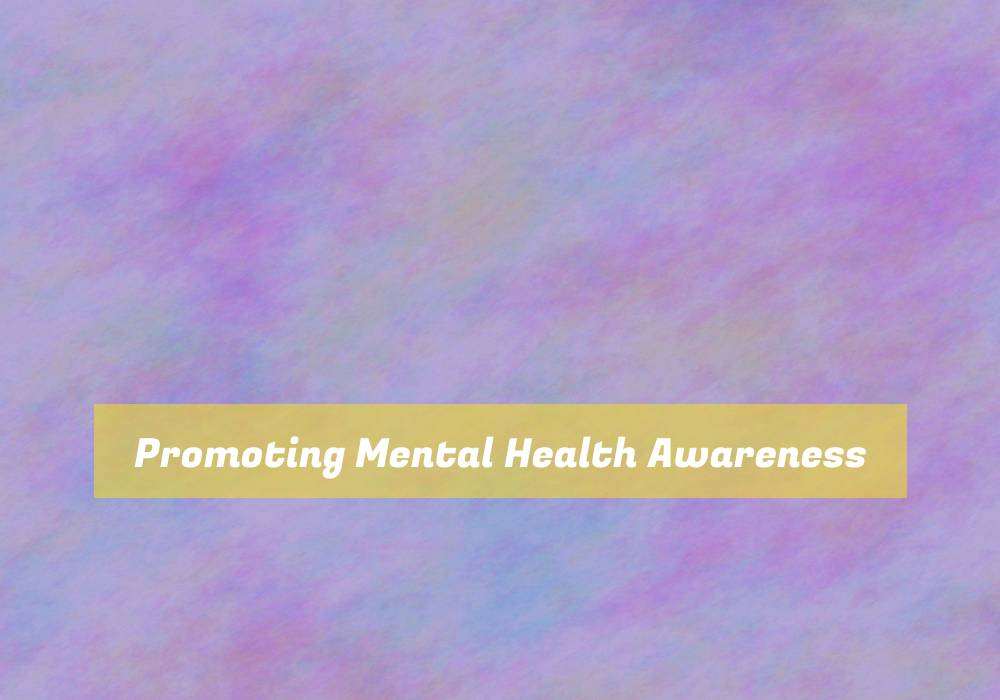Promoting Mental Health Awareness
You may have noticed a growing emphasis on the importance of mental well-being in recent years.
However, despite the increased recognition, there is still much work to be done in addressing the complexities of mental health.
The impact of mental health stigma, while often subtle, can have profound effects on individuals and communities.
By exploring effective strategies for promoting awareness and fostering supportive environments, you can play a vital role in contributing to a more empathetic and understanding society.
The Importance of Mental Health Awareness
Why is mental health awareness important for everyone?
ItG??s crucial because mental health affects all aspects of your life. When youG??re mentally healthy, you can cope with the stresses of life and make meaningful contributions to your community.
Being aware of mental health issues helps you recognize when you or someone else might be struggling, and it empowers you to seek or offer support. By understanding mental health, you can also combat stigma and discrimination, creating an environment where everyone feels comfortable seeking help when they need it.
Additionally, mental health awareness can lead to early intervention, preventing conditions from worsening and reducing the overall burden on healthcare systems. ItG??s also important for creating a more empathetic and understanding society, where individuals feel comfortable discussing their mental health openly.
Impact of Mental Health Stigma
Understanding the impact of mental health stigma is crucial for creating a more supportive and inclusive society. Stigma surrounding mental health can have profound effects on individuals, often leading to feelings of shame, isolation, and reluctance to seek help. This stigma can prevent people from seeking the support and treatment they need, exacerbating their mental health issues and impacting their overall well-being.
Moreover, mental health stigma can also lead to discrimination and prejudice, affecting individualsG?? opportunities for employment, education, and social relationships. It can manifest in the form of hurtful stereotypes and misconceptions, further marginalizing those already struggling with mental health challenges.
The impact of stigma isnG??t limited to individuals; it also permeates communities and societies, hindering open discussions about mental health and perpetuating a culture of silence. This lack of dialogue can impede progress in addressing mental health issues and creating accessible support systems for those in need.
To combat the impact of mental health stigma, itG??s essential to promote understanding, empathy, and education. By fostering a culture of acceptance and support, we can work towards dismantling stigma and creating a more inclusive environment for everyone.
Strategies for Promoting Awareness
To promote awareness of mental health, implementing targeted educational campaigns can effectively dispel misconceptions and foster understanding and support within communities. These campaigns should aim to educate the public about mental health conditions, signs, and symptoms, as well as the importance of seeking help. Utilizing various platforms such as social media, community events, and educational workshops can help reach a wider audience and engage individuals from diverse backgrounds. Collaborating with mental health professionals, advocates, and individuals with lived experiences can bring authenticity and credibility to these campaigns, making the information more relatable and impactful.
Furthermore, integrating mental health education into school curriculums can help young people develop a better understanding of mental health from an early age, reducing stigma and promoting empathy and support for those experiencing mental health challenges. Engaging employers to provide mental health awareness training in the workplace can also contribute to creating a supportive and inclusive environment for employees.
Additionally, leveraging the influence of public figures and celebrities to openly discuss mental health can help normalize conversations and encourage individuals to seek help without fear of judgment. By employing these strategies, we can foster a more informed and supportive society regarding mental health.
Building Supportive Communities
Collaborate with local organizations and community leaders to develop support networks and resources for individuals facing mental health challenges. By working together, you can create safe spaces where people feel comfortable discussing their mental health and seeking help. Consider organizing support groups, workshops, or community events to raise awareness and provide education on mental health. Encourage open conversations about mental health in your community to reduce stigma and create a supportive environment for those struggling. ItG??s important to involve diverse voices in these efforts to ensure that the needs of all community members are met.
Additionally, consider partnering with mental health professionals to offer accessible services such as counseling or therapy sessions within the community. This can make a significant impact on individuals who may not have easy access to mental health resources. By building strong connections between community members, organizations, and leaders, you can foster a sense of belonging and support for those facing mental health challenges.
Together, you can create a community that prioritizes mental well-being and advocates for a more inclusive and understanding society.
Conclusion
So, remember to educate yourself and others about mental health. Challenge stigma and advocate for supportive communities. By promoting awareness, you can help create a more understanding and inclusive environment for those struggling with mental health issues.
LetG??s work together to break down barriers and make mental health a priority for everyone.







Your exploration of mental health awareness resonates deeply with me. The intricate relationship between mental well-being and our daily lives is something I’ve come to appreciate more as I’ve navigated my own journey through numerous personal challenges. The stigma surrounding mental health issues can often feel like a silent barrier that prevents many from seeking the help they need, which is why fostering open discussions is so crucial.